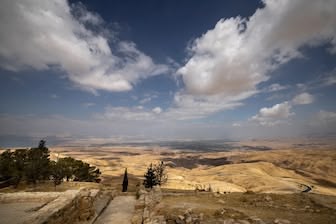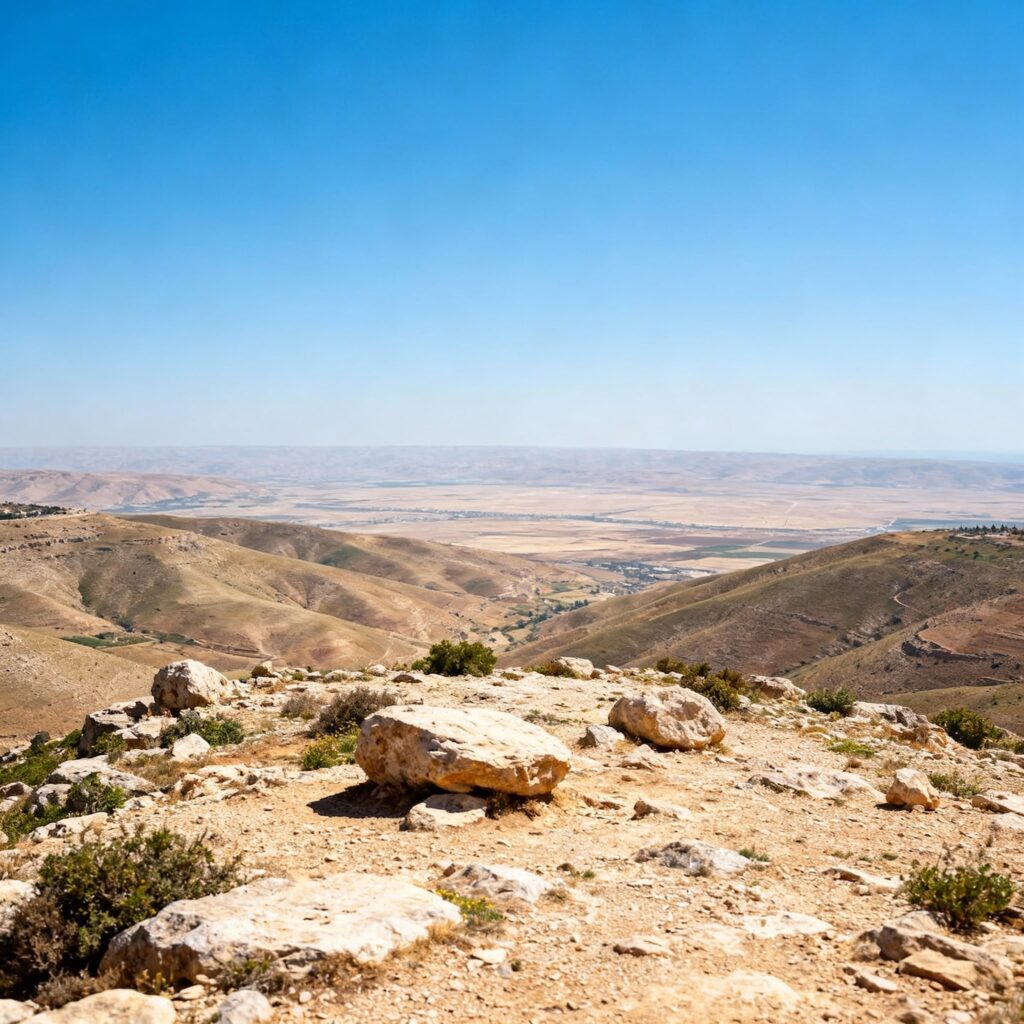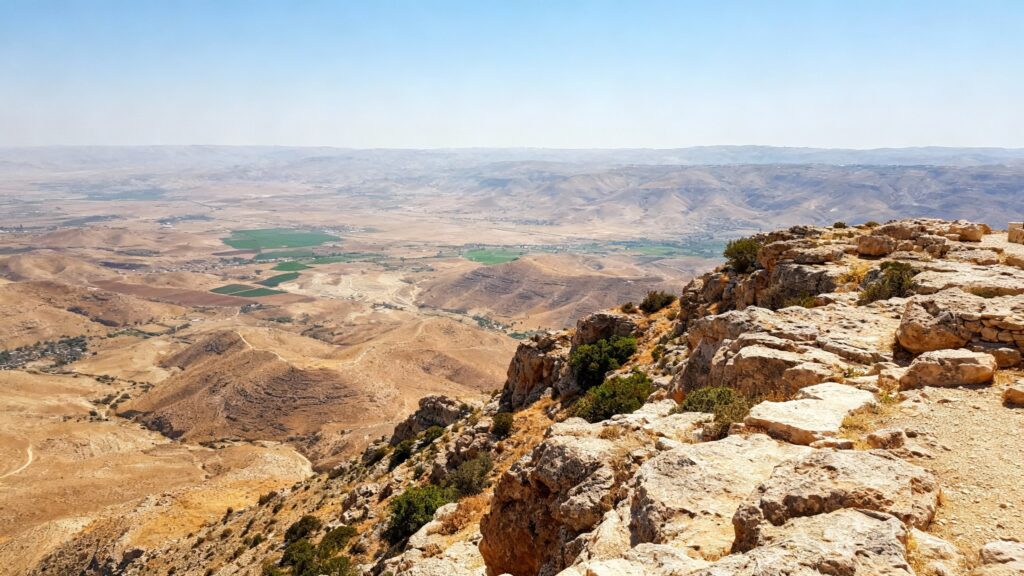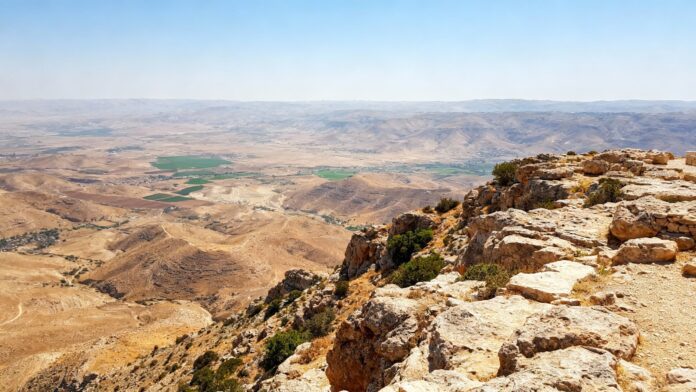The Promised Land holds a central place in the Bible and in the Jewish faith, a symbol of covenant and hope. This lengthy article will guide you, in a friendly and accessible tone, to the heart of its history, its religious significance, and its spiritual legacy for the Jewish people, inviting you to ascend, with Moses, to the summit of Mount Nebo.
What is the Promised Land?
Biblical and geographical definition
The "Promised Land" (Hebrew: ha'aretz hamuvtakhat) refers to the land of Canaan, promised by God to Abraham and his descendants. It is described as "a land flowing with milk and honey" (Exodus 3:8). Its boundaries have changed according to events, conflicts, and invasions, but it remains the land of biblical Israel, extending "from the Wadi of Egypt to the great river, the Euphrates" (Genesis 15:18).
A divine promise
The concept of the Promised Land is first and foremost a promise: God offers Abraham a territory and descendants. He tells him, «Leave your country… go to the land I will show you» (Genesis 12:1). A little later, God promises, «To your descendants I will give this land» (Genesis 12:7). This promise will be reiterated thirteen times to the patriarchs Abraham, Isaac, and Jacob.
A place of mission and spirituality
According to Jewish tradition, the Land of Israel is "an exceptional country," unique in fulfilling the mission of the Jewish people, called to serve as a model for the world. One receives the land only on the condition of following the divine commandments: "If you do not keep the Torah, the Earth will vomit you out.".
Why did God promise Abraham a land?
The Abrahamic Alliance
The promise of the land to Abraham is part of the Abrahamic Covenant: a covenant of life and mission, binding God and his descendants for eternity. God said to Abraham: «I will give to you and to your descendants after you the land of your sojourns, all the land of Canaan, as a perpetual possession. I will be God to them.» (Genesis 17:8).
A vital and sacred space
The Promised Land embodies the Jewish people's need for a vital space to build a society founded on justice and spirituality. It becomes the laboratory where the human adventure of the Hebrew people unfolds.
A gift with conditions
But the promise is never unconditional. Moses warns: disobedience would lead to the loss of the Land. Even Joshua, who leads the people into the Promised Land, must do so conditionally, according to the biblical text.

Moses at the summit of Mount Nebo
A place of fulfillment and transition
Located in Jordan, Mount Nebo is the mountain where Moses contemplates the Promised Land before dying, after leading the people out of Egypt. "The Lord said to Moses, 'Go up this mountain... and look at the land of Canaan, which I am giving to the children of Israel...'" (Deut 32:48-49).
A scene of transmission
Moses will not enter the Promised Land: «Moses observed the Promised Land… from Mount Nebo, and there he died at the age of 120» (Deuteronomy 34:5-6). His passage marks the end of his wandering and the beginning of his settlement under the leadership of Joshua.
The Conquest: Joshua and the People
Conquest recounted in the Bible
The fulfillment of the promise must wait for Joshua. After forty years in the desert, he leads Israel into the land of Canaan, guided by the covenant. This story is complex, filled with wars, obstacles, and tests of loyalty.
A territory with shifting borders
Throughout history, the borders of the Promised Land have fluctuated according to conflicts, invasions, and the diaspora. Yet, for the Jewish faith, it is the space of the divine plan.

What is the meaning of the Jewish faith?
Center of Hope
The Promised Land is the center of Jewish hope, the concrete sign that God keeps his promises. It embodies the return of the Messiah and the presence of God among his people.
Land of the Alliance and the Mission
This land is first and foremost a gift from God. But it is a gift that comes with obligations: the people must observe the Torah. The connection to the land of Israel is the covenant between God and Israel that spans the centuries.
Exile and suffering: a land to be reconquered
Judaism carries the trauma of exile and dispersion; the loss of the Promised Land is experienced as a consequence of infidelity, but the expectation of return remains central in prayer, liturgy, festivals like Passover.
Iconic biblical quotes
- «Go from your country, your people and your father’s household to the land I will show you.» (Genesis 12:1)
- «To your descendants I will give this land.» (Genesis 12:7)L
- «I have granted to your descendants this territory, from the Wadi of Egypt to the great river Euphrates…» (Genesis 15:18)
- «I will give to you and to your descendants after you the land of your sojourns, all the land of Canaan, as a perpetual possession.» (Genesis 17:8)
- «"If you do not keep the Torah, the Earth will vomit you out." (Rabbinic tradition)
- «Moses went up from the plateau of Moab to Mount Nebo, to the top of Pisgah… The Lord showed him all the land…» (Deuteronomy 34:1-4)

The Promised Land Today: Current Events and Spirituality
Land of pilgrimage, living memory
Mount Nebo, like other places in the Land of Israel, is a place of pilgrimage for Jews and Christians. It preserves the memory of Moses, Abraham, and the path of the chosen people.
Heritage and contemporary debates
The Promised Land remains a subject of debate in contemporary Judaism, confronted with geopolitical realities, Zionism, and the diaspora. But for the faith, it continues to symbolize the place of fulfillment, brotherhood, and hope.
Anecdote: "An inner journey"«
Imagine a Jewish child, during Passover, reciting the prayer "Next year in Jerusalem," their eyes shining with biblical hope. This promise still animates Jewish spirituality today, like a call to faithfulness and justice, beyond borders and decades.
How can this message be conveyed?
- Read together the verses from Genesis about the promise to Abraham during family celebrations.
- Discover biblical sites, such as Mount Nebo, through stories, films, or virtual tours.
- Teaching children that the Promised Land is also an inner journey towards loyalty, sharing, and peace.
- Meditate on the phrase "If you do not keep the Torah, the earth will vomit you out," as a call to responsibility.
The Promised Land is not just a place on a map; it is a powerful symbol of covenant, hope and mission in the Jewish faith, an invitation to contemplate, like Moses, the horizon of a just and fraternal life, where God remains present, faithful to his promises.


